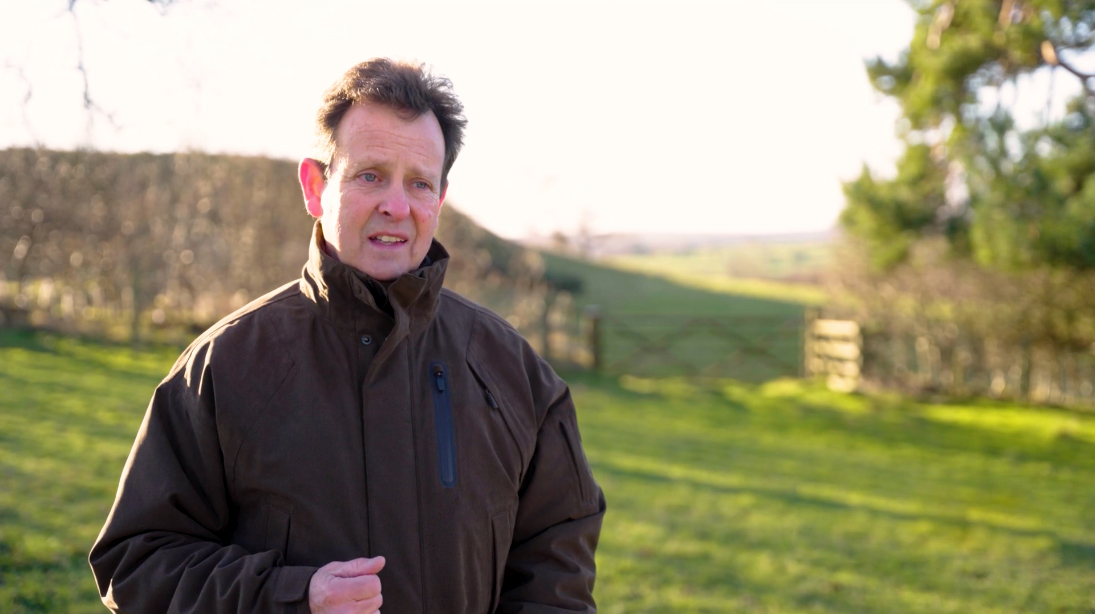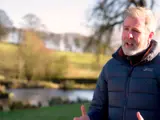Restoring Biodiversity: A New Plan for the Planet
As I write this I am filled with excitement. Not just for the new year ahead, but for the possibilities that Environment Bank can realise in terms of restoring biodiversity on our planet, starting here, in our corner of it.
This week sees the launch of Environment Bank’s new brand, website and our inspirational new film that captures everything we stand for and all we hope to achieve. Whilst our new brand launch is thrilling for myself and my team, it’s what this new start means for our planet that is filling me with hope.
I and my colleagues at Environment Bank have dedicated our careers to the environment, but for most of us, the narrative around our professional lives has always been one of decline and loss. And not without justification. It’s a fact that in the UK, we have seen an unprecedented 60% decline in biodiversity over the past five decades. Alongside climate change, the loss of biodiversity represents a direct existential threat to us – for too long we have traded natural capital for short-term economic capital. Without rebuilding biodiversity we will not be able to sustain our lives on Earth.
We’ve each dedicated our professional careers to reversing this decline in nature, but too often this has felt like a losing battle.
But right now, here at Environment Bank, we are on the brink of real and lasting change. Change at a scale and pace that will make a meaningful difference to our wildlife and the habitats they call home, improving our air quality and locking up carbon.
Our new brand represents our renewed purpose. To create hundreds of Habitat Banks nationwide; thousands of hectares of biodiversity-rich habitat that will accommodate more wildlife, increase the diversity and extent of native woodland, re-create species-rich wildflower meadows, wood meadows and wetlands. This increase in the diversity of land cover will build ecosystem resilience, help flood mitigation, sequester carbon, reduce damaging nutrient flows into our rivers, and provide more space for nature.
We have an army of experts to help us, thanks to significant private sector investment. This includes our team of expert ecologists, as well as farmers and landowners such as Toby Diggens and Bella Lowes, based at Witheridge, Devon who feature in our new film, to help us manage our Habitat Banks for a minimum term of 30 years. They’re as passionate about restoring our natural capital as we are, and together I know we will do great things for nature.
There is no other choice. With the dual-threat of climate change and the nature emergency, we have reached a critical moment in history. We have to restore nature to secure our future.
It is time to do things differently, to be bold and fearless in our mission to create a new plan for our planet and to deliver action-orientated change, at pace.

I’m proud to be leading Environment Bank, established by our Chairman, Professor David Hill, CBE, whose vision lead us to this point in time, and who inspires us all to do more and be better when it comes to the environment.
David pioneered the idea of Biodiversity Net Gain (BNG) back in 2007 - the concept of leaving the natural environment in a better state than before a development or infrastructure project was built.
We have a rapidly growing team here at Environment Bank which can now consolidate its position as the leading provider of BNG through our ‘Credits’ scheme - whereby habitat impacted by development is created with a minimum of 10% gain for nature.
Housing and commercial developers, infrastructure businesses and corporates in the UK are now required by law to ensure BNG on all new projects or risk planning permission being refused. For the first time, nature is valued as a critical asset and developments are required to properly account and compensate for impacts on the environment.
We provide the solution - thousands of hectares of biodiverse landscape restored, managed by a dedicated and passionate team of ecologists and landowners on behalf of developers, to the very highest standards.
This is just the start of our journey, and I am excited to see where it leads. Not only for our team but most importantly for our planet.

